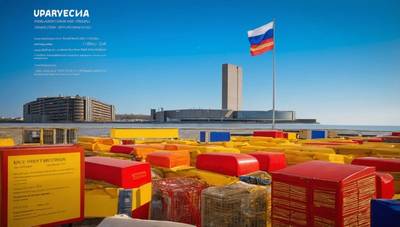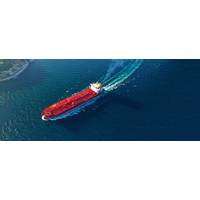What is in the EU's 18th package of sanctions against Russia?
The European Union approved a new package of sanctions against Russia on Friday, in response to its conflict in Ukraine. This is aimed at further damaging the Russian oil and energy industries.
What you should know about:
OIL PRICE CAPTABILITY
The package includes a price cap for Russian oil, which is intended to reduce Moscow's revenues from energy without causing global markets to be disrupted by cutting off Russian supply.
EU diplomats have said that the EU will set a price cap for Russian crude oil at 15% less than its average market value.
This means that the cap is currently around $47.60 a barrel, which is well below the $60 limit the Group of Seven Major Economies has been trying to impose from December 2022.
The measure is designed to prohibit the trade of Russian crude purchased at higher prices by prohibiting insurance, shipping and reinsurance firms from handling tankers that carry such crude.
The European Union (EU) and Britain are pushing the G7 group to lower the $60 cap, since the fall in oil prices has rendered it largely irrelevant.
The United States, however, has refused to comply, and the EU is left to implement the measure on its own. However, this is only possible with limited powers, as oil is mostly traded in dollars for which U.S. banks control payment clearing.
SHADOW FLEET & ENERGY TRADING
EU diplomats have announced that the EU will no long import petroleum products derived from Russian crude. However, this ban does not apply to imports coming from Norway, Britain or the U.S.
Additional 105 vessels are prohibited from entering EU ports or locks, and undertaking ship-to - ship transfers of oil. This is an attempt to close down the "shadow fleet" (older oil tankers) used to transport Russian crude oil and circumvent sanctions.
The EU has sanctioned more than 400 ships in the shadow fleet.
NORD STREAM
All transactions relating to the Nord Stream pipelines, which run under the Baltic Sea, will be prohibited. This includes any goods or services provided to these projects.
SECTOR FINANCIAL
The EU will prohibit all transactions with Russian financial institution - which are already excluded from SWIFT, the global financial messaging system.
The Russian Direct Investment Fund, as well as any investments it holds, will be included in the ban.
The aim is to further restrict Russia’s access to foreign exchange and international financial markets.
The EU also agreed to lower their thresholds for further sanctions against foreign financial and credit institution that undermine sanctions or support Russia’s war effort, for example by circumventing oil price caps.
EXPORT BANS, NEW BLACKLIST ENTRIES
Diplomats have said that the EU will add 26 new entities to its blacklist for circumventing sanctions. These include seven entities in China, Hong Kong, and Turkey.
The list of goods that EU countries can't export to Russia now includes a number of chemicals and plastics, as well as items of machinery.
DELAYED APPROVAL
This is the 18th package of sanctions against Russia since Moscow's invasion of Ukraine.
The approval was delayed for several weeks due to repeated vetoes by the Maltese and Slovakian governments.
The Slovakian government had asked for guarantees to cover potential losses if the EU decided to ban Russian gas imports by 2028. It only relented when Prime Minister Robert Fico stated that it had done all it could up until this point. (Reporting and editing by Kate Abnett and Milan Strahm)
(source: Reuters)







